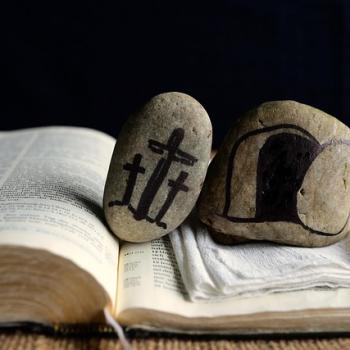Brennan Manning—author, speaker, and lifelong lover of God—died Friday, April 12, after years of slow decline. In pictures and videos taken in the past few years, he seemed feeble, his body broken, and I think all of us feared he was not long for this world.
But I was hoping he would last long enough for me to finish the novel we were writing together, The Prodigal, the story he had wanted to tell as a last project.
For decades, readers were drawn to the powerful message of grace and forgiveness found in Brennan's works, from his recent memoir of a long, challenging, and beautiful life, All Is Grace, to his million-selling The Ragamuffin Gospel. In the face of a contemporary American Christianity that argues that human beings have to earn their way to God, Brennan offered the necessary correctives that we are pursued irresistibly by the One who created us, that fail as we might (and do), we are offered forgiveness, that no one can ever sin so badly as to remove him- or herself from the love of God.
Brennan told us that we spoke of grace, but we didn't really believe in it; we spoke of forgiveness, but we didn't really believe in it; we spoke of love, but we didn't really believe in it. The failure of individual Christians to embrace the radical love of God, the failure of the Church to embody that love, broke his heart, over and over again. God loves us as we are, not as we should be, Brennan taught. Because of that, he wrote, "Any church that will not accept that it consists of sinful men and women, and exists for them, implicitly rejects the gospel of grace."
Brennan knew about grace first-hand, and he showed us that grace by telling his own story of his life as a Roman Catholic priest who left the priesthood to marry, of his struggles with alcohol and his first-hand knowledge of suffering, sin, and redemption. My friend Jana Riess, herself the author of a great memoir, Flunking Sainthood, wrote of Brennan's honesty, extolled his willingness to share the shame we all share of spiritual failure, and she said of his memoir:
But there is true repentance in these pages, genuine sorrow for the ways he has damaged the people he loves. It is a beautiful book, its intensity all the more vivid because Manning is now ill and probably dying. As such, the beginning and end of the book offer a kind of festschrift to frame his story. Numerous friends and mentees share memories of how they met Manning or how he helped to turn their lives around. In the end, these loving voices do much to quiet Manning's own articulated fears that his sins have outweighed the good he has done with his life. And throughout, always, is the underlying rhythm of a loving and forgiving God—a God Manning will meet sooner rather than later.
Grace, in the end, is everything.
While millions read and were moved by that memoir and his nonfiction works, Brennan argued in The Ragamuffin Gospel that stories, poems, and music may actually be the most powerful ways we understand and experience love, grace, and forgiveness: "If God is not in the whirlwind, He may be in a Woody Allen film or a Bruce Springsteen concert. Most people understand imagery and symbol better than doctrines and dogma." As someone who has written about the spiritual gifts of U2, the movies, and Harry Potter, this has been one of the central themes of my writing life—that the Spirit moves in mysterious ways, and may be moving in music, or movies, or great stories.





